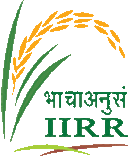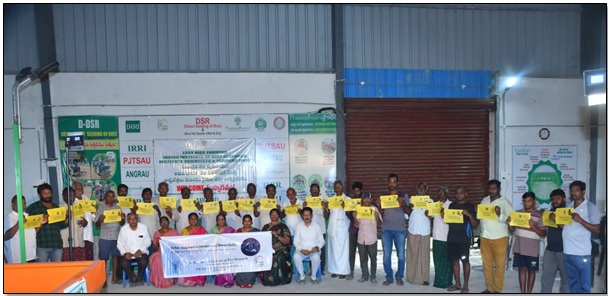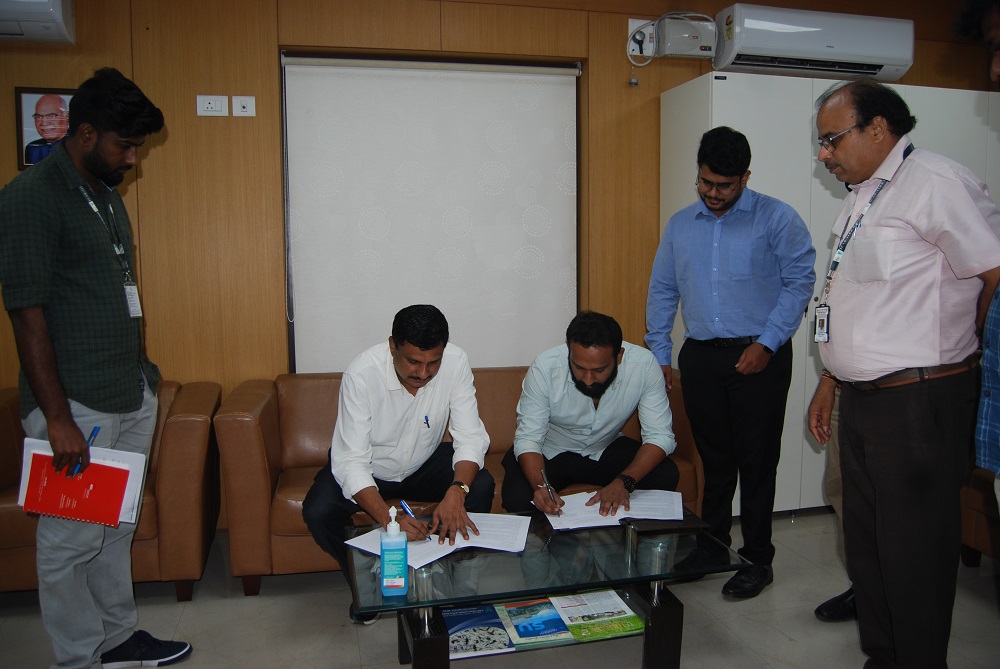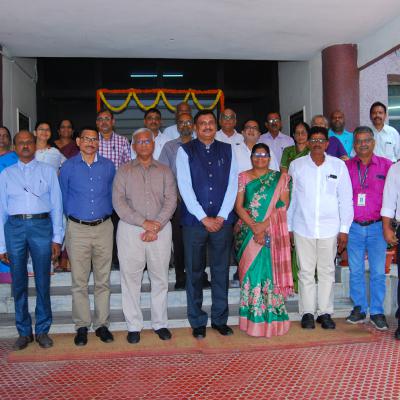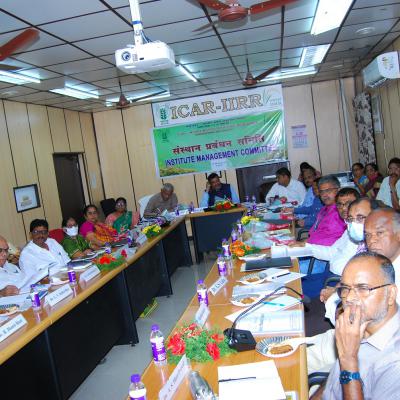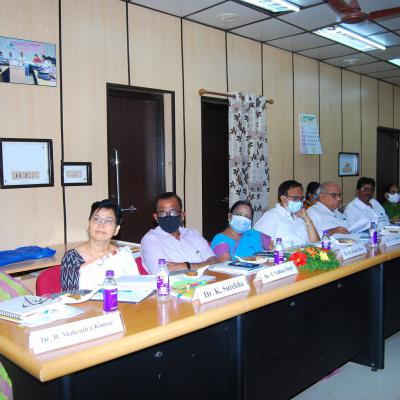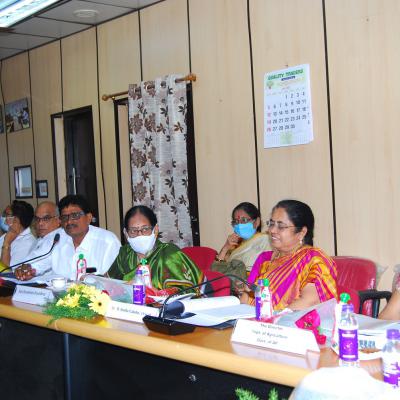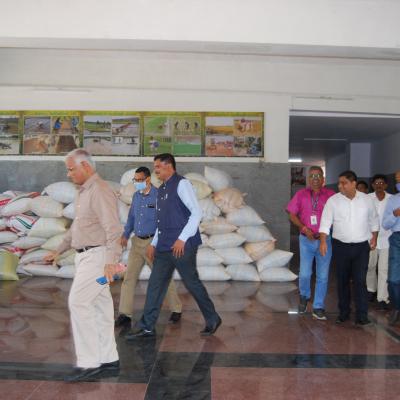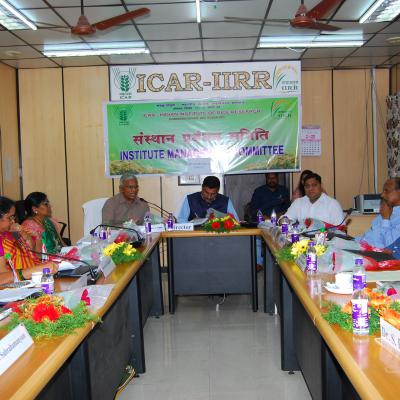IIRR Industry Meet-2022
Proceedings of IIRR Industry Meet 2022
Industry Meet 2022 - Presentations
IIRR - Industry Meet 2022 was organized in our Institute on 10.11.2022 with a theme of ‘Display of IIRR Technologies & Services’, to display the ICAR-IIRR technologies which are in the take off stage for commercialization, to discuss the essential abiding steps of MOA and MTA and the services that IIRR can offer to the private sector to support their R&D activities. Around 50 representatives of 20 private seed companies participated in the display of ICAR-IIRR technologies (varieties/hybrids/genetic stocks/pesticide formulations/soil testing kits/value added products/farm machinery etc.) In the interactive meeting, Dr R.M. Sundaram. the Director, ICAR-IIR, Hyderabad highlighted the Institute’s achievements viz., developing multiple resistant varieties for major biotic stresses, biofortified varieties with high iron and zinc, varieties with low nutrient requirement, hybrid for aerobic ecology etc. Three experts from private seed industry viz., Drs Paresh Verma, Bioseed Research India, B.C. Viraktamath, Ankur Seeds, and Dr V. Ramanathan, Rallis India Ltd shared their views on industry expectations in furthering the rice research in the country, they were emphasizing on the sharing of promising genetic stocks with valued added traits like biotic resistance/ abiotic tolerance that will help in developing high yielding genotypes. Dr D K Yadava, ADG (Seeds), ICAR, New Delhi addressed the participants (through virtual mode) and highlighted the Council’s initiative for further strengthening the public-private partnerships in strengthening the research activities which will lead to the development of high yielding genotypes with value added trails. Dr L.V. Subba Rao, Principal Scientist & PI, AICRIP (Plant Breeding) presented the details of ‘Varieties & Hybrids released by ICAR-IIRR’ and their unique features and Dr. A.S. Hari Prasad, Principal Scientist (Hybrid Rice) and Chairman, ITMU presented ‘Non-varietal Technologies & Services from ICAR-IIRR’ for the benefit of the participants. An interactive session with the participants was also organized to seek the requirement of participants for their research programs.

